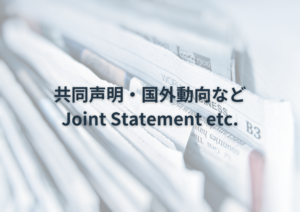Clean Lighting Coalition, Climate Action Network, and Kiko Network called upon G7 Leaders on Environment to support the global phase-out of linear fluorescent lamps by 2025 as Parties to the Minamata Convention on Mercury.
2025 linear fluorescent phase out will also avoid 3.3 Gt of carbon dioxide (CO2) emissions, US$1.34 trillion in electricity bills by 2050.
Letter
TO THE HONORABLE G7 MINISTERS OF ENVIRONMENT OF:
CANADA, FRANCE, GERMANY, ITALY, JAPAN, THE UNITED KINGDOM AND THE UNITED STATES OF AMERICA
We, representatives of Climate Action Network, Kiko Network and Clean Lighting Coalition, are writing to you ahead of the G7 Ministers' Meeting on Climate, Energy and Environment 2023 in Sapporo, Japan. Representing a broad and diverse base of environmental organizations worldwide and in Japan, we call upon you as G7 Leaders on Environment to support the global phase-out of linear fluorescent lamps by 2025 as Parties to the Minamata Convention on Mercury.
In October 2023, 140 Parties to the Minamata Convention have the opportunity to phase out linear fluorescent lamps (LFLs) - the largest contributor to lighting-based mercury pollution in the world - at the fifth Conference of Parties (COP5). Transitioning to the more energy-efficient linear LED lighting in 2025 would avoid 198 tonnes of mercury pollution from 2025 to 2050.
A new report from the Clean Lighting Coalition shows that a 2025 linear fluorescent phase out will also avoid 3.3 Gt of carbon dioxide (CO2) emissions, US$1.34 trillion in electricity bills, and 9,602 TWh of energy consumption by 2050. Following the guidance set out in the technology plan in the International Energy Agency’s Net Zero Emissions Scenario, and in support of the G7's 2022 commitment to “a fully or predominantly decarbonized power sector by 2035”, we call on G7 countries to shift all lighting sales to LED by 2025 and end the era of fluorescent lamps.
We are concerned about the submissions from Japan and Japan Lighting Manufacturers Association (JLMA) favoring delayed phase-out dates which will result in costly losses to people and the environment. The Clean Lighting Coalition report found that a two-year delay from 2025 to 2027 results in the global loss of 36 tons of avoidable mercury pollution and US$221 billion dollars in electricity bill savings. A five-year delay to 2030 approximately doubles the lost savings, amounting to 82 tons of mercury and over half a trillion dollars in higher electricity bills. In addition, approximately 300 Mt of CO2 emissions are lost for each year of delay - equivalent to annual CO2 emissions from fuel combustion in France. We call on G7 leaders to create an enabling policy environment that advances a transition to clean lighting by 2025, instead of continuing with a business-as-usual scenario that delays the transition another five years.
In conclusion, we urge the G7 Ministers of Climate, Energy, and Environment Meeting to actively support efforts to phase out fluorescent lighting worldwide by 2025, through a decision at COP5 of the Minamata Convention on Mercury in October. Transitioning to cost-effective, toxics-free and energy-efficient LED lighting technologies is the lowest-hanging fruit in the fight against climate change and mercury pollution. We, Climate Action Network, Kiko Network and Clean Lighting Coalition, invite the G7 governments under your leadership to champion the transition to a world of energy-efficient lighting free of mercury.
We also call on Japan to stop blocking the global transition to LEDs by either supporting the 2025 global phase-out of fluorescent lamps or by applying for an exemption under the Minamata Convention; enabling Parties of the Convention to protect the planet’s environment and climate, and human health.
Yours sincerely,
| Tasneem Essop Executive Director Climate Action Network International |
Ana Maria Carreño Director Clean Lighting Coalition |
Mie Asaoka President Kiko Network, Japan |
Related information
https://prtimes.jp/main/html/rd/p/000000001.000119739.html (Japanese)
Download (PDF)
Letter to G7 Ministers of Environment
Contacts
Clean Lighting Coalition (https://cleanlightingcoalition.org/)
E-mail: media.clicj@gmail.com


